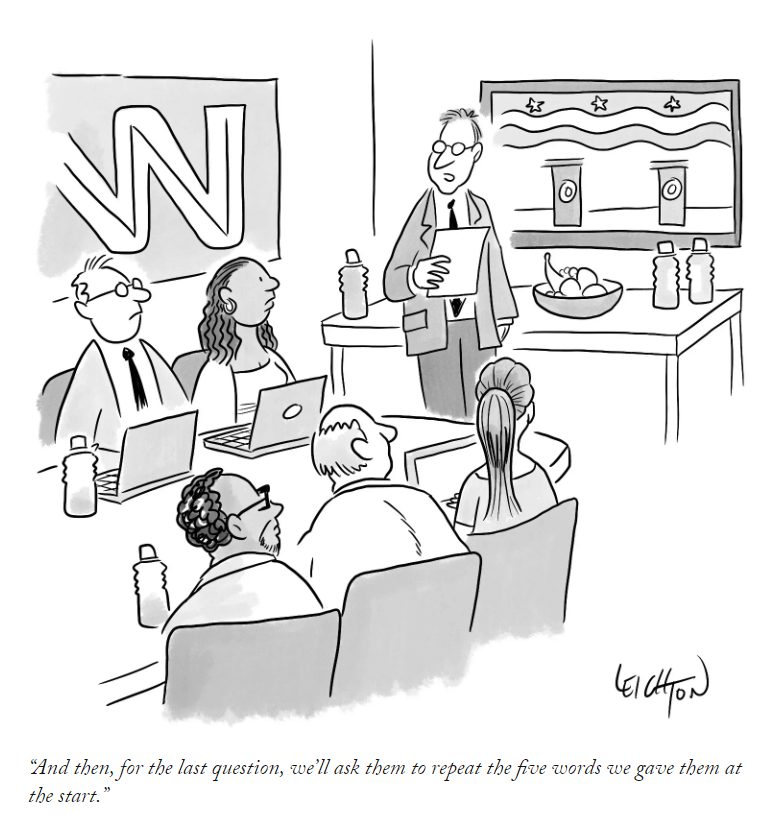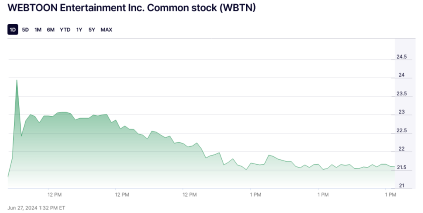CSotD: Cartoonists Take Debate
Skip to comments
Mike Smith (KFS) begins things by expressing doubt that tonight’s debate will change any votes, and he may be right, not because it won’t be a chance to evaluate the candidates head-to-head but because the people who watch will likely be the people who have already been paying attention.

Lisa Benson (Counterpoint) makes much the same point, though with a negative spin, asserting that decided voters are more sure of who they don’t want than they are of who they do.
I wouldn’t argue with her about that, particularly since I am one of apparently many progressives who wanted Biden to serve one term, calm things down and then bow gracefully out.
But, unlike Gerry Ford, Biden got no chance to calm things down, starting January 6 and continuing to the current day. Which doesn’t mean another Democrat couldn’t have taken over the reins, but it does fit Benson’s view that people are more interested in voting against one of the nominees than voting for anyone.
However, she’s dead wrong that kids have no stake in the outcome, given the trend on one side towards not giving them food or medical care, towards discriminating against them if they do not conform to gender stereotypes and towards fashioning their education to be not just conservative but partisan and punitive.
And if she’s simply saying the kid had no choice in who’s running, the question is, who did? Moving from the “smoke-filled room” style of nomination to primaries has ended the time when a party wrote a platform and chose a candidate to fulfill it and turned things over to marketers who promote a popular star around whom some sort of generic platform must be stretched.

Over at F-Minus (AMS), Tony Carrillo takes a wider view of negative attitudes, explaining that we’ve become entrenched in our attitudes and perceptions, which tends to overwhelm whatever information we’re given.
This may be true of the majority, but, given the apparent closeness of the vote so far, it is the minority, those who respond as “undecided” who will choose our next set of leaders.
They may well be open to persuasion, assuming they take the time to watch the debate and to then become more attentive and involved in the campaigns.

However, as we move towards that election to determine the fate of the American experiment, there seems a strong push — as in this nihilistic Prickly City (AMS) — to convince people that they shouldn’t be interested and that it is normal not to want to pay attention.

This seems to be a bipartisan position. Bill Bramhall tends to come down on the left side of the aisle but here is also normalizing apathy.

Walt Handelsman takes a more nuanced approach, offering us a couple who intend to watch the debate but despair over the choices they’ve been given. They hope to take the edge off but still plan to remain involved.

And Deering cuts to the chase, firmly blaming this phenomenon on ignorance and apathy rather than the quality of the candidates or the importance of the election. And, yes, it seems ironic to have people who choose not to participate in the process refer to themselves as “Americans.”
Like calling yourself a sailor but never going near the water.

Matt Davies (AMS) echoes the stress of the confrontation, with Uncle Sam taking antacids while Trump is portrayed as an inarticulate ignoramus and Biden falls asleep as they each attempt to prepare.

If nothing else, Trump and his henchmen have succeeded in planting the “Sleepy Joe” slur of a disoriented, feeble Biden. And it’s been far-reaching: Glen LeLievre echoes it in Australia as one of the few foreign cartoonists paying attention to the debate.

RJ Matson at least distributes the agist notion that old people are, by nature, prone to falling asleep, though Trump is the one caught napping in the middle of his trial.

Biden fans point out that not only has he not been spotted dozing off, but that he has often been seen jogging and cycling, with someone posting this photo and challenging Trump simply to stand on one leg.
However, as with “Al Gore the Liar,” the seed has been planted and we’ve long since entered the “Don’t confuse me with the facts” portion of the campaign.
At this point, Biden could roller skate across Niagara Falls on a tightrope and he would still be portrayed as a doddering old invalid.

That’s not to say that Donald Trump hasn’t also been saddled with baggage, and Joel Pett (Tribune) takes advantage of a cartoonist’s right to exaggerate, portraying Biden as a highly knowledgeable genius and Trump as an airhead.

On the other hand, Trump has earned that reputation, thanks to his well-documented tendency to make things up and to wander off into verbal jungles with stories about sharks and boats and toilets that won’t flush. As Drew Sheneman suggests, those topics aren’t likely to come up, but you never know.
By contrast, Biden’s speeches have included some slanted stats and the repeating of dubious family stories, but, in general, have shown a good grasp of basic facts. We’ll see, tonight, how well he does without notes.

Clay Bennett (CTFP) is one of several cartoonists suggesting that Biden is concerned with nailing down facts while Trump is more focused on performance, and Rolling Stone reports that Trump’s handlers are urging him to keep his cool and “Don’t be a raging ***hole while you’re onstage with Biden.”

Two changes in debate structure will hamper Trump’s tendency to play to the mob this time around, including the lack of an audience and, as John Deering notes, that microphones will be turned off when candidates’ time has expired, limited Trump’s ability to badger and interrupt his opponent as he did both with Clinton and Biden in past debates.

But as Nick Anderson (Tribune) and others have noted, the Trump establishment has begun preparing for a poor showing by accusing Biden of, at the least, chugging Mountain Dew, and, at worst, being injected with amphetamines prior to the debate.
Rep. Ronny Jackson has even demanded Biden be tested for Provogil, a stimulant he reportedly handed out over 2,000 times as White House physician, where he was known as “The Candy Man” for his casual prescribing.
This anticipatory denial is of a piece with Trump’s previous predictions that he could only lose a fixed election and could only be found guilty in a corrupt trial.

We’ll see how it goes, but Robert Leighton (The New Yorker) has a premonition that would certainly make my evening complete.
But I’ll likely have to settle, instead, for something more like this, but with everybody standing up:


Comments 7
Comments are closed.